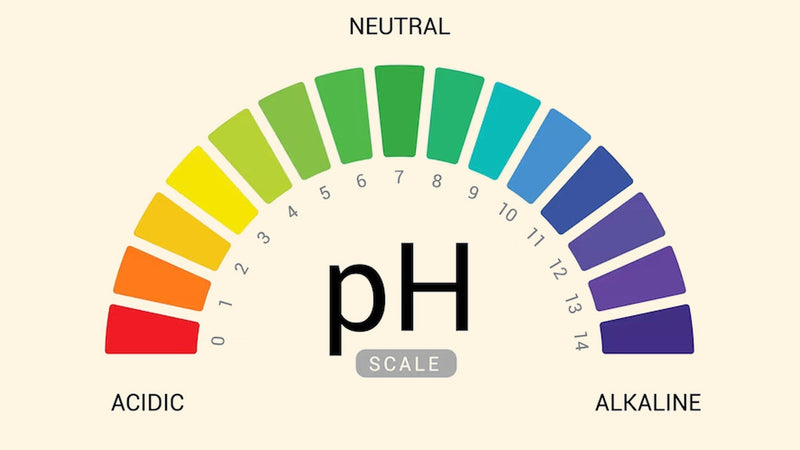

From Farm to Formula: The Sustainable Journey of EPSINIA’s Ingredients
In an era where consumers increasingly demand transparency and sustainability from their beauty brands, EPSINIA has redefined what it means to create truly responsible skincare. Our commitment extends far beyond avoiding harmful ingredients or using recyclable packaging—it encompasses every step of our supply chain, from the regenerative farms where our botanicals are grown to the advanced laboratories where they're transformed into effective formulations.
The journey of an EPSINIA ingredient is a testament to our belief that exceptional skincare begins with exceptional stewardship of the planet. Unlike conventional beauty brands that prioritize cost efficiency and convenience, we've built a supply chain that prioritizes ecological regeneration, fair labor practices, and uncompromising quality. This farm-to-formula approach ensures that every product not only delivers visible results but also contributes positively to the ecosystems and communities that make it possible.
This comprehensive exploration reveals the meticulous care, scientific rigor, and ethical commitment that defines EPSINIA's sustainable ingredient journey. From our partnerships with regenerative farmers to our carbon-neutral manufacturing processes, we've created a model for how beauty brands can operate as forces for environmental and social good while maintaining the highest standards of efficacy and safety.
Regenerative Agriculture: The Foundation of Sustainable Sourcing
At the heart of EPSINIA's ingredient philosophy lies regenerative agriculture—a farming approach that goes beyond sustainability to actively restore and enhance ecosystems. While conventional organic farming focuses on avoiding synthetic inputs, regenerative agriculture aims to rebuild soil health, increase biodiversity, improve water cycles, and sequester carbon from the atmosphere.
Our botanical ingredients are sourced exclusively from farms that practice regenerative methods. These farms use techniques like cover cropping, crop rotation, compost application, and minimal tillage to build healthy, living soil that can support diverse plant and microbial communities. Healthy soil doesn't just produce more nutritious plants—it also acts as a carbon sink, helping to mitigate climate change by drawing down atmospheric carbon dioxide.
For example, our chamomile is grown on a family farm in the Pacific Northwest that has increased its soil organic matter by 300% over the past decade through regenerative practices. Our calendula comes from a cooperative in California that uses integrated pest management and habitat restoration to support native pollinators and beneficial insects. Each farm partnership is built on long-term relationships and fair compensation that reflects the true value of regenerative stewardship.
Beyond Organic: Regenerative Impact
Regenerative agriculture doesn't just avoid harm—it actively heals. Our partner farms have collectively sequestered over 2,000 tons of carbon dioxide annually while producing ingredients with measurably higher concentrations of active compounds.
Ethical Wildcrafting: Honoring Nature's Bounty Responsibly
Not all of our ingredients come from cultivated farms—some of our most potent botanicals are wildcrafted from pristine natural environments. However, wildcrafting (the practice of harvesting plants from their natural habitat) requires extraordinary care to ensure sustainability and ecosystem preservation.
EPSINIA works exclusively with certified wildcrafters who follow strict ethical guidelines developed in collaboration with conservation biologists and indigenous knowledge holders. Our wildcrafting protocol includes never harvesting more than 10% of any plant population, avoiding endangered species entirely, and rotating harvest locations to allow for natural regeneration.
Our wildcrafted ingredients include sustainably harvested pine bark from managed forests in Scandinavia and responsibly collected seaweed from protected coastal areas in Ireland. Each wildcrafting operation undergoes annual third-party audits to verify compliance with our sustainability standards and ensure that harvesting practices support rather than deplete natural ecosystems.
Importantly, we compensate wildcrafters at rates that reflect the ecological knowledge and stewardship required for ethical harvesting. This approach not only ensures ingredient quality but also supports rural communities and preserves traditional ecological knowledge that has been passed down through generations.
Ethical Wildcrafting Standards
Our commitment to responsible wild harvesting:
- Maximum 10% harvest rate to ensure population sustainability
- Annual third-party audits and ecological impact assessments
- Partnerships with indigenous communities and traditional knowledge holders
- Rotational harvesting to allow natural ecosystem regeneration
- Fair compensation that values ecological stewardship expertise
Transparent Traceability: Knowing Exactly Where Ingredients Come From
In an industry notorious for opaque supply chains, EPSINIA has implemented a comprehensive traceability system that allows us—and our customers—to track every ingredient from its source to the final product. This transparency isn't just about accountability; it's about building trust through verifiable information.
Each batch of ingredients is assigned a unique lot number that links to detailed documentation including farm location, harvest date, cultivation methods, processing techniques, and quality test results. We maintain direct relationships with every supplier in our chain, eliminating the multiple intermediaries that often obscure ingredient origins in conventional beauty supply chains.
Our traceability extends beyond just botanical ingredients to include every component of our formulations. Our magnesium comes from solar-evaporated seawater in the Dead Sea region, our vitamin E is derived from non-GMO sunflower oil, and even our water is sourced from a protected aquifer and purified through advanced filtration systems. Nothing enters our formulations without complete documentation of its origin and processing history.
This level of transparency also enables us to respond quickly to any quality concerns and continuously improve our sourcing practices based on real-time feedback from our farming partners and environmental monitoring data.
Sustainable Processing: Preserving Potency While Minimizing Impact
The journey from farm to formula involves careful processing that preserves the integrity and potency of our ingredients while minimizing environmental impact. Unlike conventional extraction methods that rely on harsh solvents and high energy consumption, EPSINIA employs gentle, low-impact processing techniques that honor both the ingredient and the planet.
Our primary extraction method is supercritical CO2 extraction, which uses pressurized carbon dioxide as a solvent to extract active compounds without heat degradation or chemical residues. This method not only preserves the delicate phytochemicals that give our ingredients their efficacy but also uses CO2 that is captured from industrial processes, creating a closed-loop system that reduces waste.
For water-soluble compounds, we use cold maceration and low-temperature distillation processes that require significantly less energy than conventional high-heat methods. Our manufacturing facility runs on 100% renewable energy and employs water recycling systems that reduce consumption by 85% compared to industry standards.
Even our packaging reflects this commitment to sustainable processing. Our glass containers are made from 70% recycled content, our labels use plant-based inks, and our shipping materials are compostable or recyclable. Every decision in our processing chain is evaluated through a triple-bottom-line lens that considers environmental, social, and economic impacts.
Sustainable Processing Innovations
How we preserve potency while protecting the planet:
- Supercritical CO2 extraction using captured carbon dioxide
- Cold maceration and low-temperature distillation processes
- 100% renewable energy-powered manufacturing facility
- 85% reduction in water consumption through recycling systems
- Zero-waste formulation processes with ingredient repurposing
Carbon-Neutral Operations: Measuring and Offsetting Our Footprint
EPSINIA's commitment to sustainability extends beyond ingredient sourcing to encompass our entire operational footprint. We've implemented a comprehensive carbon accounting system that measures emissions across all aspects of our business—from farm inputs and transportation to manufacturing and shipping.
Our annual carbon footprint assessment revealed that ingredient cultivation and transportation account for approximately 65% of our total emissions, while manufacturing and operations represent 25%, and packaging and shipping make up the remaining 10%. This detailed breakdown allows us to target our reduction efforts where they'll have the greatest impact.
To achieve carbon neutrality, we employ a three-pronged strategy: reduce, offset, and regenerate. We've reduced emissions through renewable energy adoption, optimized logistics, and lightweight packaging. We offset remaining emissions through verified carbon credits that support reforestation and renewable energy projects. Most importantly, we invest in regenerative agriculture practices that actively sequester more carbon than we emit, creating a net-positive environmental impact.
Our carbon neutrality certification is verified annually by third-party auditors, and we publish our complete emissions data and offset activities in our annual sustainability report. This transparency ensures accountability and demonstrates our commitment to continuous improvement in environmental stewardship.
Community Impact: Fair Trade and Economic Justice
Sustainable ingredient sourcing isn't just about environmental impact—it's also about social justice and community well-being. EPSINIA operates on fair trade principles that ensure all partners in our supply chain receive fair compensation, safe working conditions, and opportunities for economic advancement.
Our farming partners receive premium prices that reflect the true cost of regenerative practices, plus additional premiums for community development projects. In Morocco, our argan oil cooperative has used these premiums to build a women's education center and healthcare clinic. In Peru, our maca farmers have invested in irrigation systems that increase drought resilience while supporting neighboring communities.
We also prioritize partnerships with minority-owned and women-led businesses throughout our supply chain. Over 60% of our direct suppliers are owned by women or underrepresented minorities, reflecting our commitment to economic inclusion and diversity. These partnerships aren't just about social responsibility—they also bring diverse perspectives and innovative approaches to sustainable agriculture.
Our community impact extends to our local operations as well. We employ a living wage policy that pays all team members significantly above local minimum wages, provide comprehensive healthcare benefits, and support ongoing education and professional development opportunities.
The Future of Sustainable Beauty: Innovation and Advocacy
While we're proud of our current sustainability achievements, EPSINIA recognizes that the journey toward truly regenerative beauty is ongoing. We're actively investing in research and development to push the boundaries of what's possible in sustainable ingredient sourcing and formulation.
Our R&D team is exploring cutting-edge technologies like cellular agriculture, which can produce rare botanical compounds without harvesting from wild populations. We're also developing closed-loop water systems that will achieve 95% water recycling in our manufacturing processes and investigating biodegradable alternatives to even our current compostable packaging.
Beyond our own operations, we're committed to industry advocacy and knowledge sharing. We participate in sustainability working groups, publish our methodologies and findings in open-access formats, and mentor emerging brands in sustainable practices. We believe that systemic change requires collaboration and transparency across the entire beauty industry.
Our ultimate vision is a beauty industry that operates as a net-positive force for planetary and human health—one where every product contributes to ecosystem regeneration, social equity, and consumer well-being. The farm-to-formula journey of EPSINIA's ingredients represents our contribution to this vision, demonstrating that exceptional skincare and exceptional stewardship can—and must—go hand in hand.
Beauty That Gives Back
The sustainable journey of EPSINIA's ingredients represents more than just responsible sourcing—it embodies a fundamental reimagining of what beauty can be. In a world facing unprecedented environmental and social challenges, we believe that every purchase is a vote for the kind of world we want to create.
When you choose EPSINIA, you're not just investing in your skin's health—you're supporting regenerative farms that sequester carbon, fair trade partnerships that empower communities, and innovative practices that push the boundaries of sustainable beauty. Each ingredient in our formulations carries the story of the people and places that made it possible, from the farmers who nurtured it in healthy soil to the scientists who transformed it into effective skincare.
This farm-to-formula approach proves that sustainability and efficacy aren't competing priorities—they're complementary commitments that create products that are better for your skin, better for the planet, and better for the communities that make them possible. As we continue to refine and expand our sustainable practices, we invite you to join us on this journey toward a more beautiful, just, and regenerative future.


















